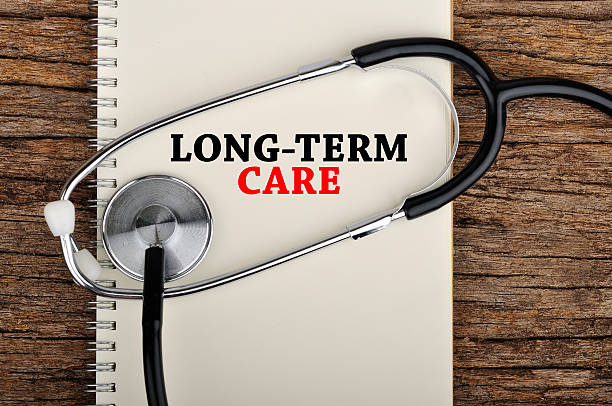No election surprises in Washington
While Tuesday’s election results included some surprise upsets (understatement of the year), here in Washington things were a little more predictable.
As expected, voters approved Initiative 1433, the measure to increase the state’s minimum wage to $13.50 and mandate paid sick leave for every worker, easily passed with a comfortable 59-41 margin. Despite daily newspapers from around the state urging voters to reject the measure, along with warnings from researchers at the University of Washington that a higher minimum wage could have significant impacts on regions with lackluster economies, polls predicted the victory and voters did not disappoint.
So what happens next?
Minimum Wage
Effective January 1, 2017, the state’s minimum wage will begin phasing in to $13.50 per hour, starting at $11 next year. In 2018 the minimum wage will bump to $11.50, in 2019 the wage will be $12, and on January 1, 2020, the full $13.50 phase-in will be complete. Every year thereafter the minimum wage will automatically increase according to inflation.
What many do not realize is that the state’s current minimum wage law, as well as the new laws mandated by I-1433, only apply to workers 18 years and older. The minimum wage of workers who are under the age of 18 is determined by the state Department of Labor & Industries (L&I). Currently, L&I requires workers 16 and older to earn the state minimum wage, while allowing 14-15 year old workers to be paid a “training wage” that is 85% of the minimum wage. Under I-1433, L&I will continue to have the authority to set the minimum wage for those under the age of 18.
In its endorsement of I-1433 The Seattle Times encouraged L&I to expand the lower training wage to all workers under 18. If the agency fails to do this, The Times urged lawmakers to force the agency’s hand by passing legislation to the same effect. Since I-1433 does not address wages for workers under the age of 18, passage of a teen training wage would not run afoul of the two-year moratorium for amending initiatives without a two-thirds supermajority vote.
A lower minimum wage for teen workers would help mitigate some of the negative impacts an artificially high wage has on the job opportunities for young workers who have no experience or skills. Lawmakers have tried to pass training wage bills in previous legislative sessions; some versions applied to teen workers only, while others were temporary training wages for all new workers. Whether the issue will be resurrected in the 2017 legislative session remains to be seen.
The Times also opined that lawmakers should further tweak I-1433 by passing legislation that would allow for a slower phase-in of the $13.50 minimum wage for the state’s rural areas. This approach would somewhat follow in the footsteps of Oregon, which earlier this year passed landmark legislation adopting a phased-in, three-tiered approach to increasing the minimum wage.
Oregon’s new law increases the minimum wage over the next six years and sets different wage rates within the state based on a region’s population density. The minimum wage is set at $12.50 for the lowest tier that comprises rural counties. The second tier will be $13.50 for mid-size urban counties and the third tier will top out at $14.75 for the greater-Portland area.
Lawmakers could pass legislation establishing a similar tiered phase-in based on region, but would be constrained by the two-thirds majority or two-year moratorium requirement.
Paid Sick Leave
The paid sick leave provision of Initiative 1433 will go into effect in 2018. Workers will receive one hour of paid sick leave for every forty hours worked, and they can begin using the leave after 90 days of employment. Employees will be allowed to carry over 40 hours of unused paid sick leave every year, with no limit to how many days of paid leave can be used in a year.
Since Washington does not currently have any paid sick leave requirements, the state Department of Labor & Industries (L&I) will be tasked with adopting, implementing and enforcing the new paid sick leave rules mandated by I-1433. L&I will determine such details as the procedures employers must follow to notify employees about the paid sick leave requirements and the records employers must keep.
While three cities in Washington already have paid sick leave laws, the paid sick leave provisions in Initiative 1433 are more generous and more broadly applied, in varying ways, than the limited paid sick leave mandates that officials imposed in Seattle, Tacoma and Spokane.
For example, Seattle’s paid sick leave laws exempts small businesses with fewer than four employees, and new companies with fewer than 250 employees are exempt from the paid leave requirement for 24 months after the hire date of their first employee. Workers in Tacoma are capped at earning 24 hours of paid sick leave per year, may carry-over only 24 hours and are limited to using 40 hours per year. The paid sick leave law in Spokane provides newly licensed businesses with a one-year grace period from providing paid sick leave, designates different leave requirements based on employer size and only allows up to 24 hours of earned paid leave to be carried over.
In contrast, under Initiative 1433:
- There is no provision for small businesses. A business employing two workers would have to give the same amount of paid sick time as businesses with 5,000 + workers.
- There would be no maximum limit on how much paid sick leave could be accrued.
- There would be no maximum limit on how much paid sick leave an employee could use in a year.
- Up to 40 hours of unused paid leave could be carried over to the following year.
Officials in Seattle, Tacoma and Spokane must now recalibrate their paid sick leave laws to ensure they are in compliance with the new mandates imposed by Initiative 1433.
The changes are a particular quandary for Spokane, whose new sick leave laws were scheduled to go into effect on January 1 next year. City officials are now wondering if they should scrap their law entirely and wait for Initiative 1433 to go into effect in 2018, effectively delaying paid sick leave another year; whether they should move ahead with implementing their law in its current form and then saddle Spokane’s employers with a whole new set of rules 1433 goes into effect the following year; or whether they should amend their current law to reflect the provisions of 1433 and keep the implementation date of January 1, 2017, effectively imposing the mandates of 1433 a year early.
Either way, employers across Washington are in for quite a few changes over the coming years.







